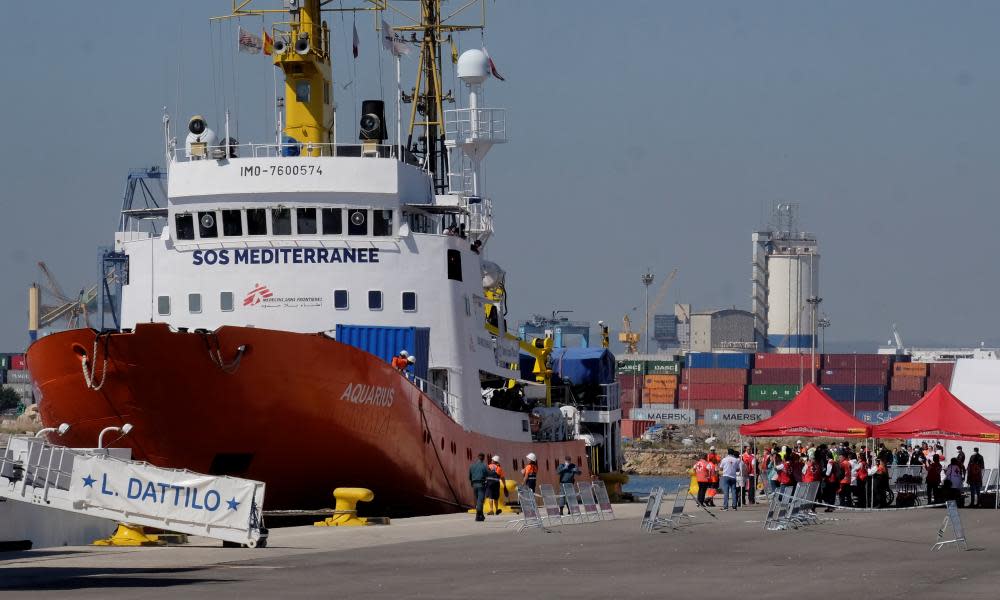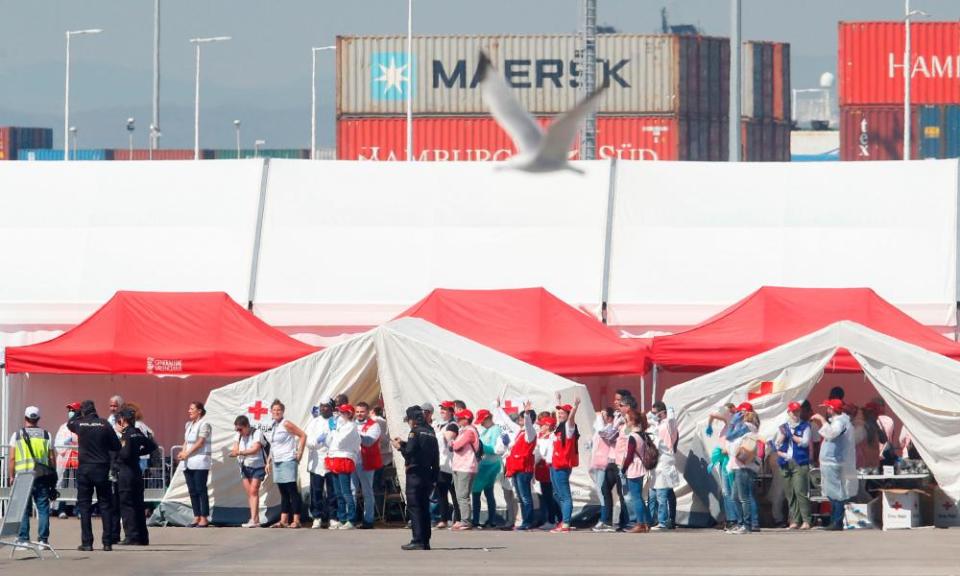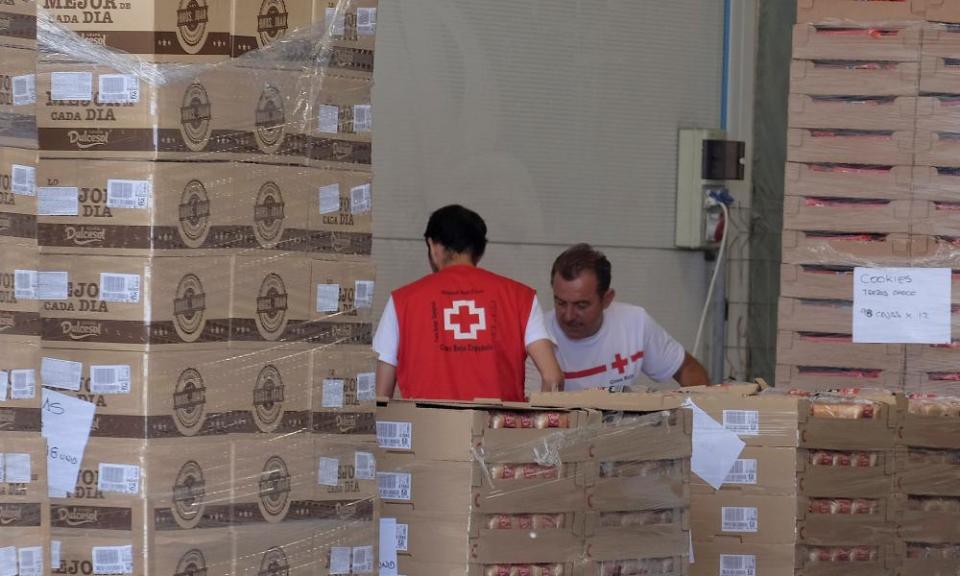Aquarius migrants arrive in Spain after rough week at sea

The 630 migrants and refugees rescued off the coast of Libya and turned away from Italy and Malta have begun to arrive at the Spanish port of Valencia after seven days at sea.
An Italian coastguard vessel, Dattilo, the first of three ships transporting the group, pulled into Valencia harbour at 6.20am carrying 274 people.
The Aquarius arrived in Valencia a few hours later, entering the port shortly after 11am local time and carrying 106 migrants and refugees.
A third ship the Italian naval vessel, the Orione, is due to pull into the port later on Sunday. It is carrying 250 people.
The migrants’ plight, which has laid bare the deep divisions over migration within the EU, has seen the French president, Emmanuel Macron, accuse the Italian government of “cynicism and irresponsibility” by refusing to let the rescue ship Aquarius dock in one of its ports.
Their immediate fate was only settled on Monday when the new Spanish prime minister, Pedro Sánchez, said the country would take them in, saying it had a duty to help avert “a humanitarian catastrophe”.
The Aquarius is a rescue ship operated by the charities SOS Méditerranée and Médecins Sans Frontières (MSF). Aloys Vimard, MSF coordinator aboard, said the past few days had been difficult, with rough seas making people sick.
“This is not a cruise ship,” he said. “It’s a search-and-rescue ship. It’s not made for people to stay on for more than two, three, four days. Because of the weather, we asked everyone to stay inside the accommodation and they were really cramped in the room we have. People were sick because of the waves.
“It was difficult to see and I have in my mind a breast-feeding mother who was trying to feed her child while she was seasick.”
As soon as they disembark, the rescued people – who include at least seven pregnant women, 104 children and teenagers and people suffering from burns caused by fuel – are to receive medical checks from the Red Cross.


The international medical organisation has deployed hundreds of staff and volunteers to the area and has set up tents and a reception centre in the port. Rows of blue and green camp beds had been erected in the centre on Saturday afternoon and boxes of food, nappies and clothes were stacked close by.
Outside the warehouse hung a huge banner, reading, “Welcome home” in Valencian, Spanish, English, French and Arabic.
Staff from the UN refugee agency, UNHCR, will be present to help passengers fleeing war or persecution claim asylum, while 400 interpreters will be on hand to ensure proper communication. The operation is being overseen by Valencia’s regional government.
It also emerged on Saturday afternoon that the French government had offered to take in any of the Aquarius passengers who wished to settle in the country once the necessary procedures had been followed.
Spain’s decision to accept the migrants and refugees comes amid rising tensions within the EU and calls for a fundamental reappraisal of the current migrations system.
Spain’s new foreign secretary, Josep Borrell, has described the country’s decision as a “highly symbolic act” intended to jolt Europe out of its “ostrich politics” on the issue of migration.
The recently formed government has also announced plans to extend public healthcare to foreigners without residence permits, and is looking at removing the barbed wire that tops border fences in the two Spanish enclaves of Melilla and Ceuta in North Africa.
The UNHCR has warned that Spain is facing “another very challenging year” when it comes to helping and protecting those arriving on its shores.
On Friday and Saturday alone, Spain’s maritime rescue service saved 933 people trying to cross the Mediterranean and recovered four bodies.

 Yahoo News
Yahoo News 
